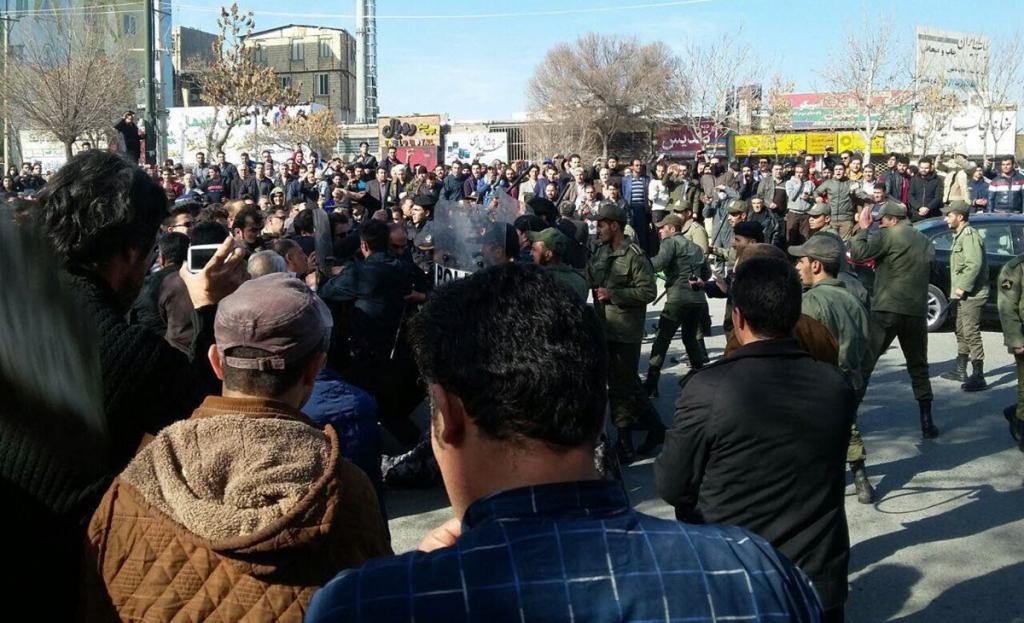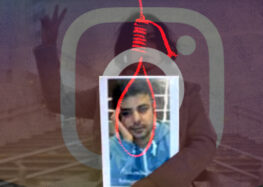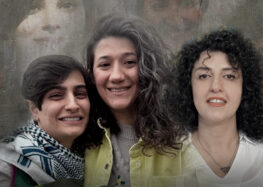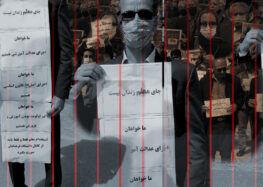Detainees Arrested in Iranian Protests Facing Charges That Carry Death Penalty

Some detainees arrested in the protests that broke out in Iran’s Hamadan and Khuzestan provinces in December 2017 are facing charges that are punishable by death, the Center for Human Rights in Iran (CHRI) has learned.
“Some of them have been investigated, interrogated and charged with ‘rebellion,’” said a legal source in the city of Izeh, Khuzestan Province, who spoke on the condition of anonymity for fear of reprisals.
“The families of the freed detainees have been threatened a lot and are too afraid to talk,” added the source. “Most of them say that they are being slapped with serious charges and if they do anything wrong, they could be given heavy sentences.”
During the protests approximately 400 people were arrested in Izeh. To date, approximately 50 of them remain in detention.
A legal source in Hamedan Province told CHRI that the exact number of detainees there is not known, but many of them, arrested mainly in the cities of Asadabad and Touyserkan, have been charged with “corruption on earth” and “rebellion,” which could result in the death penalty.
Exact casualty figures have not been released but according to official sources, three to six people died in those cities during the protests. Their identities have not been revealed.
According to Article 279 of Iran’s Constitution: “Moharebeh (rebellion) is defined as drawing a weapon against the life, property or chastity of people or to cause terror as it creates the atmosphere of insecurity.”
Officials have not indicated who has been charged with drawing a weapon at the protests, however, security forces harshly repressed the demonstrations, which occurred in dozens of Iranian cities, with water cannons, tear gas, rubber bullets and live fire.
Iranian officials have also referred to the protests as “blind, violent riots.”
According to Article 286 of the Constitution: “Any person, who extensively commits felony against the bodily entity of people, offenses against the internal or international security of the state, spreading lies, disruption of the economic system of the state, arson and destruction of properties, distribution of poisonous and bacterial and dangerous materials, and establishment of, or aiding and abetting in, places of corruption and prostitution [on a scale] that causes severe disruption in the public order of the state and insecurity, or causes harsh damage to the bodily entity of people or public or private properties, or causes distribution of corruption and prostitution on a large scale, shall be considered as mofsed-e-fel-arz [corrupt on earth] and shall be sentenced to death.”
Several protesters arrested in Iran’s 2009 demonstrations were also issued harsh legal charges. The defendants were ultimately spared the death penalty, however, two political prisoners were executed during that time.
At least 25 people died and more than 3,700 were arrested during the weeklong protests that broke out across dozens of Iranian cities on December 28, 2017. Human rights organizations and lawyers have expressed serious concerns for detainees, many of whom are being held without access to a lawyer.
At least two protesters have died in custody.






